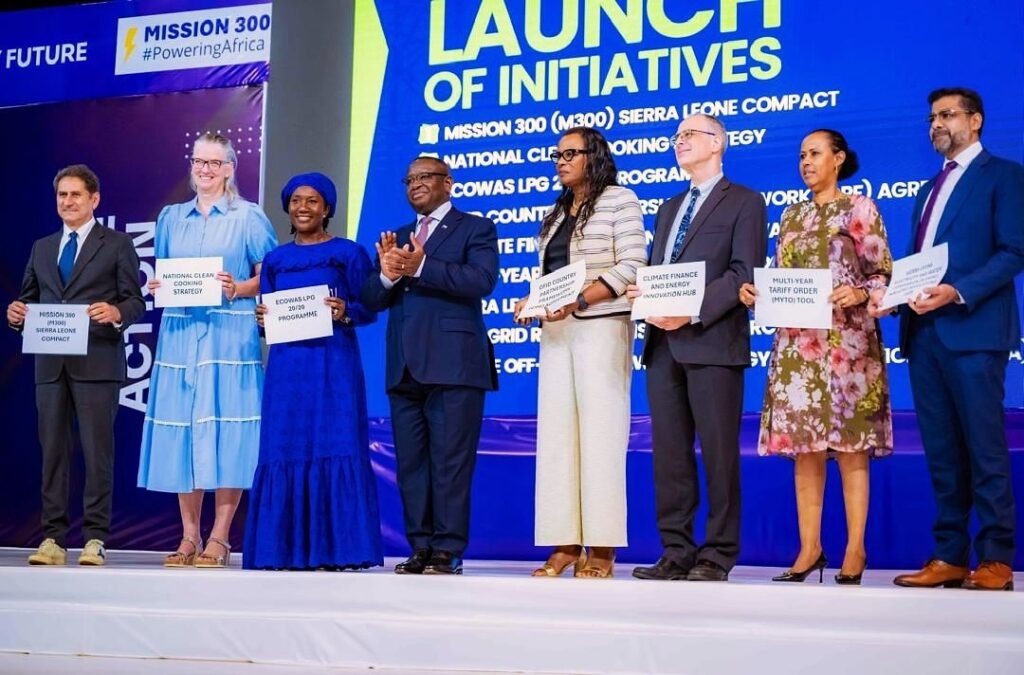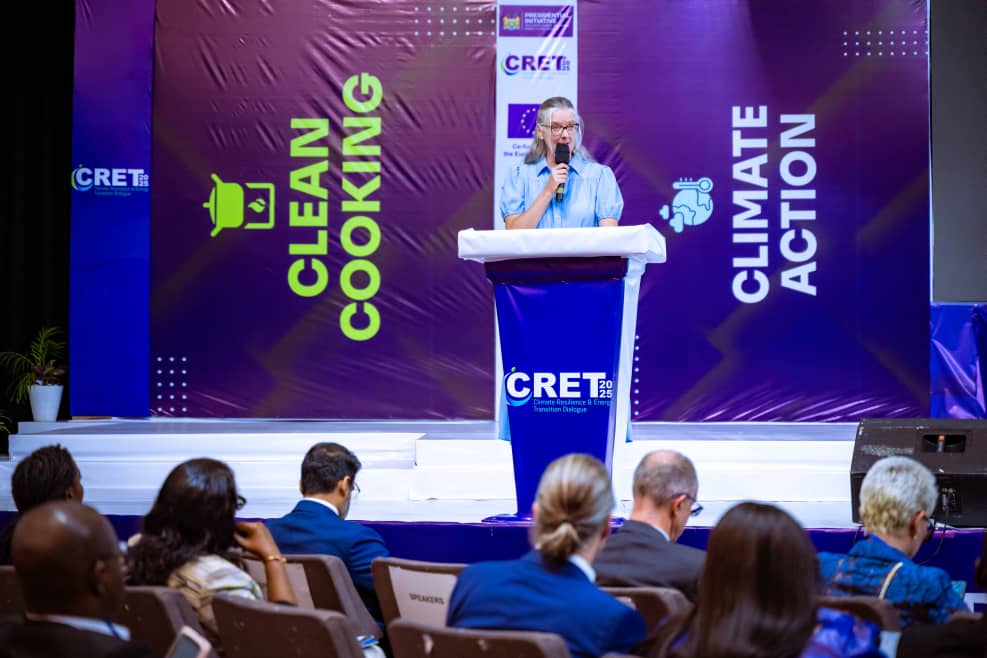Sierra Leone’s New Strategy Makes Clean Cooking a National Priority
On October 21, 2025, Sierra Leone became the latest country to reach a critical milestone on energy: launching its first National Clean Cooking Strategy.
The official launch of this strategic document took place at the 2025 Climate Resilience and Energy Transition Dialogue in Freetown, where His Excellency Dr. Julius Maada Bio, President of Sierra Leone, reaffirmed his government’s commitment to energy access.

Today, fewer than 2% of Sierra Leoneans have access to clean cooking solutions; most people rely on smoky, open fires that endanger people’s health and damage forests.
The Sierra Leone National Clean cooking Strategy (2025-2035), spearheaded by the Ministry of Energy and supported by the World Bank and other partners, marks a turning point in the country’s energy future.
“This strategy… provides a framework for coordinated action across government, private sector, civil society, and international partners to expand access to clean cooking technologies and fuels,” said Dr. Abdul Rahim Jalloh, Deputy Minister-2 of the Ministry of Energy. “It also positions clean cooking not only as a health and environmental priority, but as an economic opportunity capable of driving innovation, creating jobs, and enhancing resilience to climate change.”
“Only through collective action can we achieve universal access to clean cooking, improve the health and livelihoods of our people, and contribute to Sierra Leone’s climate and development goals,” noted Dr. Kandeh Kolleh Yumkella, Energy Sector Lead and Chairman of the Energy Governance Coordination Group.

Partnerships on clean cooking have been strengthened lately by the Sierra Leone Clean Cooking Delivery Unit, headed by Aminata Wurie, who is working across government and the private sector to scale up clean cooking adoption, recognizing its cross-cutting impacts. The strategy highlighted its “instrumental role in ensuring effective coordination and collaboration with the various stakeholders who contributed their knowledge, insights, and time.”
“Clean cooking should no longer be considered a luxury but rather a necessity for all Sierra Leoneans,” Wurie said. “We now have the strategy we need to provide clean cooking to families across the country, whether in cities or rural areas. By working together, we can make these plans a reality.”
To achieve access to clean cooking for all Sierra Leoneans, the strategy identifies five priorities:
- Affordability: Expanding subsidies and consumer financing to make clean cooking more accessible
- Awareness: Running public campaigns to boost understanding and awareness
- Enterprise support: Strengthening financing and capacity building
- Regulation and standards: Implementing policies that ensure safety, quality, and consumer trust
- Coordination: Deepening collaboration across government agencies and other relevant groups like the Clean Cooking Association of Sierra Leone and the Delivery Units Network.
The Ministry of Energy estimates that fully implementing Sierra Leone’s clean cooking strategy will cost around US$817.8 million, with most financing going toward technologies and fuels such as bioethanol, charcoal, LPG, and electric cooking.
However, the cost of inaction is much higher, at US$4.7 billion annually. Indoor air pollution is the leading cause of death in Sierra Leone, responsible for nearly 8,700 deaths every year.
“The government has shown that energy access, food systems, and climate resilience are inseparable pillars of sustainable development,” said Clean Cooking Alliance CEO Dymphna van der Lans. “Clean cooking is one of the most powerful entry points to achieving this vision.”
The launch of Sierra Leone’s strategy sends a clear message: clean cooking is central to the nation’s path to health and prosperity.
* The strategy is expected to be publicly available in November 2025. It will be linked to here as soon as it is available.
